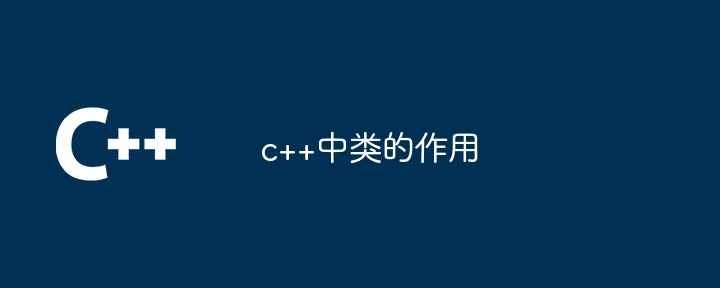
The role of classes in C: Data abstraction: encapsulates data and operations, hiding implementation details. Data Hiding: Control access to member variables and functions through access modifiers. Code reuse: Reuse as a template to reduce the writing of duplicate code. Object-oriented programming: Provides concepts such as objects, classes, inheritance, and polymorphism to model the real world more naturally. Extensibility: Easily extensible to create new subclasses or implement new functionality through inheritance and polymorphism. Code Organization: Helps organize and modularize code to make it easier to understand and maintain. Exception handling: You can define your own exceptions to catch and handle specific errors or exception conditions.

The role of classes in C
Classes are the core concept in C language and are a user-defined A data type that can be used to represent custom data structures and behaviors. It encapsulates data and functions that operate on that data, providing many benefits such as data hiding and code reuse.
Function
1. Data abstraction: The
2. Data hiding:
3. Code reuse:
4. Object-oriented programming (OOP):
5. Improve scalability:
6. Code Organization:
7. Exception handling:
The above is the detailed content of The role of classes in c++. For more information, please follow other related articles on the PHP Chinese website!
 What are the differences between c++ and c language
What are the differences between c++ and c language
 Recommended learning order for c++ and python
Recommended learning order for c++ and python
 Cost-effectiveness analysis of learning python and c++
Cost-effectiveness analysis of learning python and c++
 Is c language the same as c++?
Is c language the same as c++?
 Which is better to learn first, c language or c++?
Which is better to learn first, c language or c++?
 The difference and connection between c language and c++
The difference and connection between c language and c++
 C++ software Chinese change tutorial
C++ software Chinese change tutorial
 Cost-effectiveness analysis of learning python, java and c++
Cost-effectiveness analysis of learning python, java and c++




